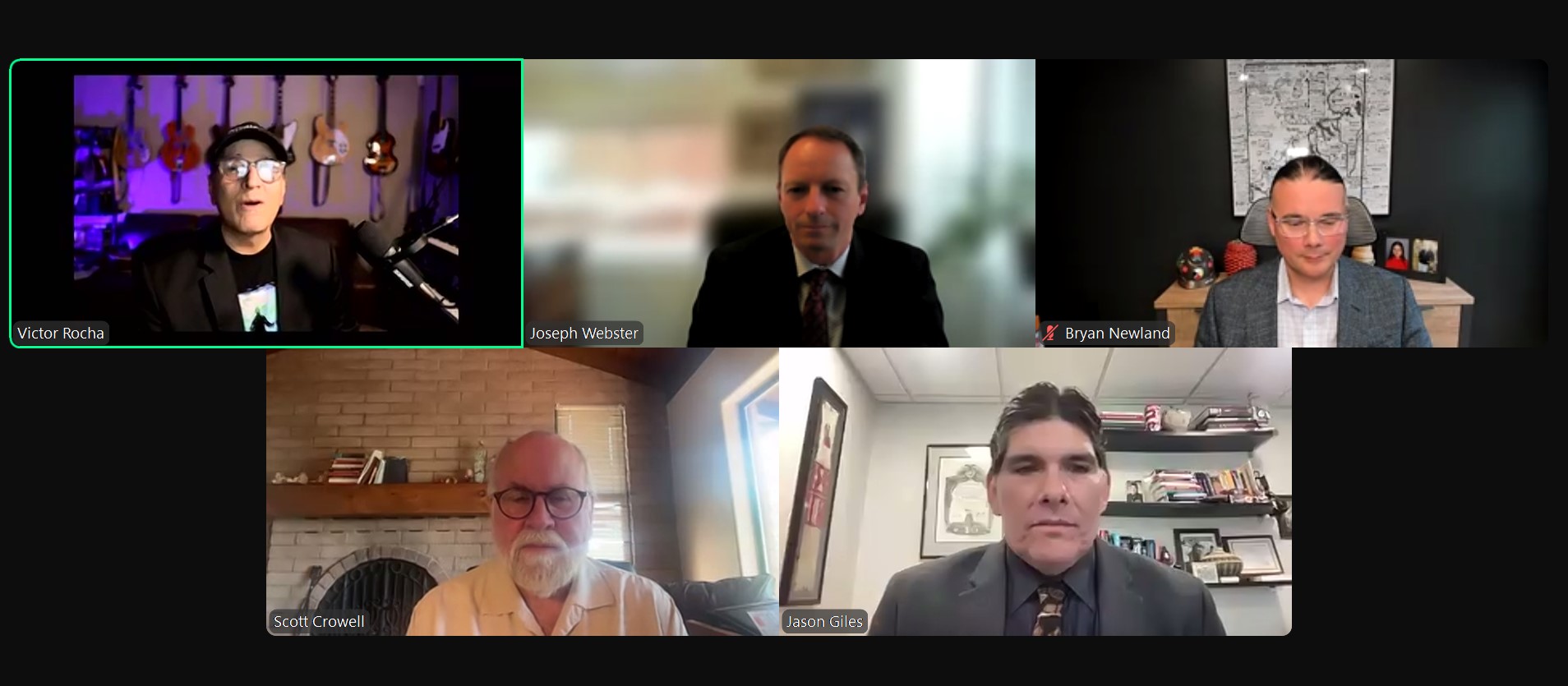Predictive Markets and Tribal Gaming: An Emerging Challenge to Sovereignty
As discussions intensify among regulators, states, and the federal government regarding predictive markets, tribes have remained largely silent. However, the landscape may soon shift.
Victor Rocha and Jason Giles from the Indian Gaming Association recently hosted a significant webinar featuring prominent tribal gaming lawyers. The session focused on how predictive markets might affect tribal sovereignty and gaming rights, building on earlier conversations about the challenges posed by sweepstakes operators. The current spotlight is firmly on the ever-expanding realm of predictive markets.
Panelists, including Joseph Webster, Bryan Newland, and Scott Crowell, characterized these predictive markets—especially in the context of sports contracts—as posing an "existential threat" to Indian gaming. The pressing task now lies in identifying strategic legal avenues for tribes to navigate this evolving issue.
Giles shared insights from recent conversations with policymakers, noting a surprising lack of awareness regarding predictive markets among those in power. During exchanges with officials in Nevada, he found that state commercial operators had yet to address this matter, reflecting a disconnect that could have implications for tribal interests.
Tribes have emerged as vocal opponents of predictive markets, particularly given that these federally sanctioned exchanges operate in all states, including those with tribal compacts that grant exclusivity. Since the Commodity Futures Trading Commission (CFTC) initiated public commentary on these markets, a significant portion of feedback has come from tribal entities.
As of now, Indian nations have not taken any direct legal action against predictive markets. The battleground has primarily involved state regulators, with several states engaged in litigation against Kalshi, a major player in the predictive market space. However, tribal leaders still hold critical leverage in this ongoing conflict.
The Jurisdictional Maze
Jurisdiction is a central theme in this debate. Companies like Kalshi assert their federal legality as sanctioned by the CFTC, claiming immunity from state gaming regulations. So far, they have succeeded, achieving preliminary injunctions to operate in Nevada and New Jersey.
Crowell expressed concern about this trend, noting that states are now positioned to challenge the federal government’s authority over these markets. Historically, election betting and predictive markets faced significant scrutiny at the federal level, but the landscape has changed under the current administration.
Notably, Donald Trump Jr. serves as an advisor for Kalshi, and Brian Quintenz, a board member at the company, has been nominated to head the CFTC. This political backing has led to the dismissal of previous appeals against election betting under the Biden administration, complicating matters for state regulators.
The precarious alliance between states and tribes is becoming increasingly evident. Both parties are now grappling with the erosion of jurisdiction due to the unchecked proliferation of gaming avenues that challenge their respective authority. However, tribes may have a clearer path due to protections from the Indian Gaming Regulatory Act (IGRA), which offers a federal framework for tribal gaming.
The IGRA Factor
Newland posited that if the Commodities Exchange Act (CEA) supersedes state gaming laws, then IGRA likely holds the same weight. The interaction between these two legislative frameworks remains murky, but past arguments against IGRA have been largely ineffective.
Webster pointed out that Kalshi referenced IGRA in its defense against Nevada’s legal actions, arguing that their sports event contracts aren’t classified under IGRA. He expressed concern that such claims effectively minimize tribal involvement in what is indisputably a gaming activity.
Despite setbacks, utilizing IGRA in litigation could clarify the stakes for tribes, according to Newland. If the activities fall under gaming, they may be violating tribal laws. Conversely, if they don’t, it raises questions about the relevance of IGRA altogether.
The Linguistic Dilemma
Interestingly, the CFTC’s regulations already prohibit contracts related to gaming, yet Kalshi maintains that predictive markets don’t constitute gaming. The panelists emphasized the still-evolving nature of this debate, warning that current rulings may be overturned.
Newland remarked that the expansion into sports exceeds the original intent of these markets, which aimed to provide economic hedging. Crowell noted that the contradictory language used by Kalshi in its marketing could serve as a useful tool in legal arguments.
The National Indian Gaming Commission, which has previously classified sports betting as Class III gaming, may also play a role. However, the absence of a confirmed chair for over a year complicates potential interventions.
Navigating Future Outcomes
As developments unfold, various stakeholders must brace for different scenarios. For many tribes, gaming serves as a cornerstone of their economies, making asset protection critical. In contrast, commercial operators may not share the same urgency, benefiting from the ongoing state-led litigation.
DraftKings’ earlier attempt to register “DraftKings Predict” with the National Futures Association, despite being withdrawn, signals potential shifts in the competitive landscape. Meanwhile, Flutter Entertainment, the parent company of FanDuel, has hinted at exploring predictive markets more seriously.
Ultimately, tribes face the necessity of defending their interests in an evolving landscape. The speed of change has set this issue apart; Crowell emphasized he has "never seen such an existential threat progress so quickly." As Webster affirmed, "It’s not something that’s in the future; it’s here."
This ongoing saga not only tests the adaptability of tribal gaming but also reveals the intricate relationship between emerging markets and established sovereignty rights.
